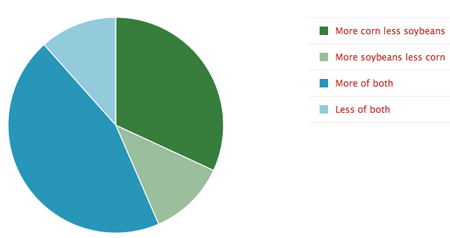E85 sales keep growing in North Dakota. According to the North Dakota Clean Cities program, approximately 1.3 million gallons of E85 were sold in 2011 at more than 70 retail outlets, up from 663,727 gallons sold in 2010.
E85 is an ethanol-based fuel intended only for use in “flex fuel vehicles” (FFVs) that are built to use either E85, gasoline, or other high-ethanol blends. There are more than 64,000 FFVs registered in North Dakota. The American Lung Association in North Dakota recognizes E85 as a Clean Air Choice that flex fuel vehicle drivers can make today to reduce their impact on air quality and lung health.
“Gasoline contains a number of compounds that are potentially hazardous to our health, including benzene, toluene, and xylene,” said Joey Roberson-Kitzman, coordinator of the clean fuels program at the American Lung Association in North Dakota. “E85 is not only cleaner-burning than gasoline, it is made close to home, and helps to support rural families and communities in North Dakota. It helps to diversify our transportation fuel choices, and strengthens our energy security.”
For more information on E85 or a list of where to buy the fuel or to see if your vehicle can use E85, visit the American Lung Association in North Dakota’s Clean Air Choice website.



 At issue is California’s request for a stay of the injunction issued by District Court Judge Lawrence J. O’Neill when he ruled in December that the new fuel regulation issued by the California Air Resource Board (CARB) violated the Commerce Clause and was therefore unconstitutional.
At issue is California’s request for a stay of the injunction issued by District Court Judge Lawrence J. O’Neill when he ruled in December that the new fuel regulation issued by the California Air Resource Board (CARB) violated the Commerce Clause and was therefore unconstitutional.
 Rabobank first points out significant changes in U.S. ethanol policy starting in 2012. The VEETC blending credit and a tax on ethanol imports both expired in December 2011 and U.S. ethanol industry groups have shifted their political weight toward initiatives like E15 and advanced biofuels.
Rabobank first points out significant changes in U.S. ethanol policy starting in 2012. The VEETC blending credit and a tax on ethanol imports both expired in December 2011 and U.S. ethanol industry groups have shifted their political weight toward initiatives like E15 and advanced biofuels.




 “I think more of that will happen when we know more about who controls the Senate and the House, and who’s the president and where the EPA is on all this after November,” said Bill Lapp of
“I think more of that will happen when we know more about who controls the Senate and the House, and who’s the president and where the EPA is on all this after November,” said Bill Lapp of